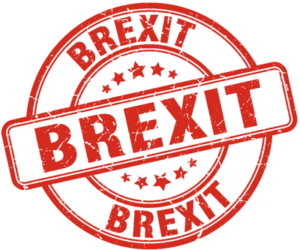 Brexit is looming and whether it is hard or soft there is no arguing it is going to change the British business landscape more than anything else in a generation. One of the UK’s biggest industries is gambling, per head our betting and gaming companies make more money than any other country in the world. Therefore it stands to reason that many people are worried about the effects could have on us as punters at home and abroad.
Brexit is looming and whether it is hard or soft there is no arguing it is going to change the British business landscape more than anything else in a generation. One of the UK’s biggest industries is gambling, per head our betting and gaming companies make more money than any other country in the world. Therefore it stands to reason that many people are worried about the effects could have on us as punters at home and abroad.
From questions around the Irish border through to what will happen to deals between various Air Traffic Control centres, there are a huge number of issues still swirling around regarding what will happen when the United Kingdom eventually leaves the European Union. Debates around whether or not it’s even a good idea in the first place are for other people to have, as on this page we’re interested in the gambling industry and what will happen to it once Brexit goes from being an abstract idea through to a reality
The reality is, unlike many EU industries, gambling is not centrally regulated, instead each country have their own laws and licensing arrangements. This means in large part UK bettors will not notice much difference the day we leave the EU, however if you gamble with a non-UK company it is possible they could pull out of the market.
The biggest effects of Brexit are for the bookies themselves, who now need to make decisions about where they base their online operations. Many are moving from UK jurisdictions like Gibraltar to EU gambling hubs like Malta and this costs money which ultimately will be passed on to the punter. Tax and trade arrangements could also mean higher costs for betting websites that could end up in the punters lap.
Here we’ll look at how the industry is at the moment, which will give us a clue about how things might change in the future. We’ll also discuss the difference in the gambling regulations in the United Kingdom and the EU, plus how the single market works. The likelihood is that there will be both positives and negatives for the UK gambling industry with Brexit, to say nothing of the fact that those positives and negatives will differ depending on the agreement reached with the European Union. Here we’ll try to explore them all in as much detail as possible.
Current Health Of The UK Gambling Industry
 The UK gambling industry is entering Brexit in an incredibly healthy position. Worth over £15 billion the annually there are few markets that can boast those kinds of resources and therefore even if leaving the EU has an overall negative effect British betting companies are in a good position to deal with it. British companies also lead the markets abroad, the country boasts the richest and biggest gambling operators and therefore it is unlikely the EU will turn their back on them.
The UK gambling industry is entering Brexit in an incredibly healthy position. Worth over £15 billion the annually there are few markets that can boast those kinds of resources and therefore even if leaving the EU has an overall negative effect British betting companies are in a good position to deal with it. British companies also lead the markets abroad, the country boasts the richest and biggest gambling operators and therefore it is unlikely the EU will turn their back on them.
Gambling is a massive industry in the UK, with more than three and a half billion pounds being spent on online bets during 2015, whilst in 2017 the gross gambling yield reached £12.6 billion according to the UK Gambling Commission. The income from remote betting, which includes online casinos, poker and so on, went from just over £800 million in 2009 to more than £4 billion by 2017. In other words, gambling is one of the most important industries to the UK economy.
The bigger the industry grows, the better it is for the UK economy on account of the fact that a 2014 amendment to the 2005 Gambling Act introduced a 15% tax at the point of consumption on all gross profits. The fact that it’s a point of consumption tax means that companies can’t avoid paying it simply by being based abroad. If companies try to get around paying the tax then they can find themselves refused a UK Gambling Commission licence, which would mean that they wouldn’t be allowed to accept customers from the UK at all. This will still be in place after Brexit.
In terms of the current relationship between the EU and the UK, it is perhaps best described as ‘ambivalent’. Across the majority of areas of British law the rules and regulations from the European Union are so interwoven with the various parts of life as to be almost indistinguishable from British law. When it comes to the gambling industry, however, there’s been a far more standoffish attitude employed by the EU.
The situation is summed up by Clive Hawkswood, the CEO of the Remote Gambling Association, who believes that the EU isn’t all that interested in the approach that its member states take to gaming law, saying, “Europe doesn’t get involved in tax issues unless it’s really off the wall – they’re much more involved in regulatory or social issues. The UK has always been free to move its tax up and down as it wanted. Europe’s never taken much interest”.
Gambling Regulation in the UK

The UK is fortunate in two ways. It is the most heavily regulated gambling market in Europe and this means leaving the EU shouldn’t cause any headaches in terms of regulation at home as the laws and procedures already in place will continue to apply. The gambling act of 2014, which you can read about in detail in our licencing and laws article, also means that the UK is covered for operators based abroad that still want to operate here.
Any commercial business that offer gambling services to those in Britain must have a UK Gambling Licence and, in doing so, must also comply with the conditions and codes of practice outlined in the licence. This is ensure by visits and reviews carried out by the Gambling Commission, advice and guidance given out to those companies that have a licence and also preventative action carried out by the Gambling Commission on companies that seem to be veering away from the rules and regulations applied to them.
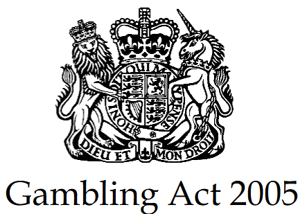 The most important thing for consumers in the United Kingdom is that the gambling laws here are very tightly regulated. In order to understand how we got to this point, it’s first important to have a look at how things were before. People in the UK have gambled for as long as there’s been something to wager a bet on. The activity was banned by King Henry VIII when he thought that his soldiers were being distracted from their duties because of it. This notion was overturned by Elizabeth I, his daughter, who approved the instigation of a national lottery in order to raise money via tax revenues.
The most important thing for consumers in the United Kingdom is that the gambling laws here are very tightly regulated. In order to understand how we got to this point, it’s first important to have a look at how things were before. People in the UK have gambled for as long as there’s been something to wager a bet on. The activity was banned by King Henry VIII when he thought that his soldiers were being distracted from their duties because of it. This notion was overturned by Elizabeth I, his daughter, who approved the instigation of a national lottery in order to raise money via tax revenues.
When the horse racing industry began to take off during the industrial revolution, the government chose to tolerate betting among the aristocracy but chose to keep it criminalised among the poor. Even so, they continued to bet illegally whenever possible and during the 1800s some high-profile fraudulent activity in the world of betting led the government to introduce both the Gaming Act of 1845 and the Betting Act of 1853, which essentially prohibited commercial gambling everywhere but on the racecourse.
The first major change to the country’s attitude towards gambling came courtesy of the Betting and Gaming Act in 1960. That allowed for the opening of on-street bookmakers starting in May of 1961, leading to more than ten thousand opening their doors within six months. Even so, the world of bookmakers was still something of a shady one and the new shops were intentionally unwelcoming. It wasn’t really until the 1990’s that attitude began to see a real shift, which was about the same time as the minimum Trebles Rule was lifted from football betting.
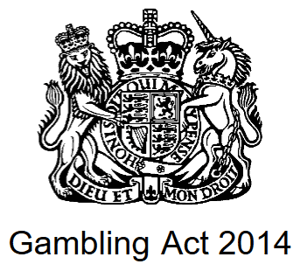 The turn of the millennium saw probably the biggest change to the manner in which gambling was legislated in the UK. Prior to 2001 all bets had a betting levy of nine pence to the pound attached to them, payable on either the stake or the winnings. When BetVictor, then under the moniker of Victor Chandler, moved to Antigua in the mid-1990s in order to offer a tax free service to clients from the East, the chancellor of the exchequer, Gordon Brown, feared the rest of the industry would follow. The result was the decision to abolish the tax for gamblers and instead to charge the companies themselves 15% on their gross profits.
The turn of the millennium saw probably the biggest change to the manner in which gambling was legislated in the UK. Prior to 2001 all bets had a betting levy of nine pence to the pound attached to them, payable on either the stake or the winnings. When BetVictor, then under the moniker of Victor Chandler, moved to Antigua in the mid-1990s in order to offer a tax free service to clients from the East, the chancellor of the exchequer, Gordon Brown, feared the rest of the industry would follow. The result was the decision to abolish the tax for gamblers and instead to charge the companies themselves 15% on their gross profits.
All of which brings us vaguely up to date, especially with the introduction of the Gambling Act in 2005, which was designed to streamline the various gambling laws into one Act. It also saw the setting up of the Gambling Commission, which would be responsible for the regulation of the new industry. Whist there were still loopholes and ways around the new laws, the Act required bookmakers to have a gambling licence, regardless of where they were based. The main thing that the 2005 Act did was to properly add some legislation to the online side of the gambling industry, which has previously been akin to the Wild West.
There were, as mentioned, still numerous loopholes and manners in which companies could avoid certain aspects of the UK legislation on the issue. That was dealt with by the introduction of an amendment to the Act in 2014, namely the 2014 Gambling (Licencing and Advertising) Bill. Focused more on the online aspect of the industry, it requires off-shore companies to have a Gambling Commission licence in order to operate in the UK. It stopped companies that had moved to the likes of Gibraltar and Malta from avoiding the government’s 15% tax.
Gambling Regulation in the EU
 The crucial thing to realise when it comes to talking about gambling in the EU, and the factor that is most relevant when it comes to a discussion about the gambling industry and Brexit, is that there is no one single rule that overrides all of Europe. That is a huge slice of pie for gambling companies to try to get a piece of, with the European market accounting for just shy of 48% of the entire revenue for online gambling in the world.
The crucial thing to realise when it comes to talking about gambling in the EU, and the factor that is most relevant when it comes to a discussion about the gambling industry and Brexit, is that there is no one single rule that overrides all of Europe. That is a huge slice of pie for gambling companies to try to get a piece of, with the European market accounting for just shy of 48% of the entire revenue for online gambling in the world.
The problem that betting companies have got is that each member state of the EU is responsible for their own gambling legislation. Indeed, on the 7th December 2017 the European Commission closed its procedures on infringement and complaint treatments when it came to gambling, meaning that it indicated that it’s not an area of priority. Instead of some sort of over-riding policy, there are different laws and rules for each country, state and even city within the European Union.
It may not be like this forever but for Brexit at least not a lot will change in terms of gambling within the EU. UK betting companies that have relevant licenses or authority in EU countries will continue to operate in those markets and likewise most EU companies with UK licences will continue to operate here. The main thing that could change is access, meaning many companies may need to set up offices in the EU (or EU companies set up in the UK) in order to offer their services unrestricted. They may be subject to more tariffs on profits, and could have reduced access to foreign workers, but all in all from the customer perspective not a lot will change, at least initially.
The Single Market
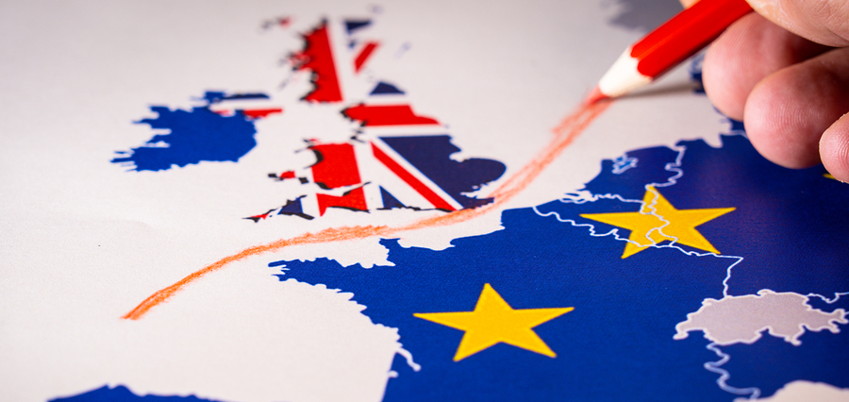
The Single Market is a way of referencing the entirety of the European Union as one area, as though it has no border or any other sort of obstacle to the way that goods and services move, to say nothing of the famously controversial free movement of people. The idea behind the Single Market is that improves efficiency and raises the quality of goods.
The Single Market is at the heart of everything good about the European Union, fuelling economic growth and making things much easier for companies and people living within the EU. Services make up 70% of the economic activity within the EU as well as employment, with companies taking advantage of that in order to offer what they have to other countries around the bloc.
Obviously gambling companies have taken advantage of that in numerous ways, including basing themselves in different parts of the EU that have their own tax rules on profits and cheaper employment. One of the most obvious examples of this is with online casinos that have ‘live’ variations on their games, basing themselves in parts of Europe, such as Bulgaria or Romania, where the wage is less and they can therefore employ people for less money than they’d be able to do in the UK.
Many bookmakers based in the UK (and its jurisdictions such as Gibraltar) have been able to utlilise the single market to sell their product in EU countries without any additional tariffs, likewise EU based companies can operate in the UK (often from Gibraltar) with no additional costs beyond standard taxes that apply to all operators, wherever they are based in the EU. Following Brexit it is highly likely the single market will no longer be available or restricted in the UK, likewise additional restrictions may be placed on EU companies offering gambling services to the UK. This means many companies are now making the decision to split their services, opening new offices in the UK and the EU, to avoid additional tariffs or regulation, in effect splitting their businesses into separate UK and EU entities.

Other companies will simply decide to pull out of markets, therefore following Brexit you may notice some online bookies based in the EU will no longer accept UK players, and vice versa. In reality however, baring a very bad no deal scenario, few operators will actually decide to pull out of the UK or the EU, even if additional tariffs apply, simply because the industry is so profitable. A more real scenario is that these additional costs will be passed on to the punter resulting in poorer odds, bonuses and promotions.
Employment is another issue too for the gambling industry, many companies currently take advantage of free movement to allow employees to move between UK offices in gaming hubs like Gibraltar and EU hubs like Malta. This could become more problematic after Brexit, which again could increase operator costs. One place where this effect could be most acute is in Gibraltar where many people live in Spain and work in Gibraltar (or vice versa) and again this could become an issue post-Brexit.
World Trade Organisation Rules
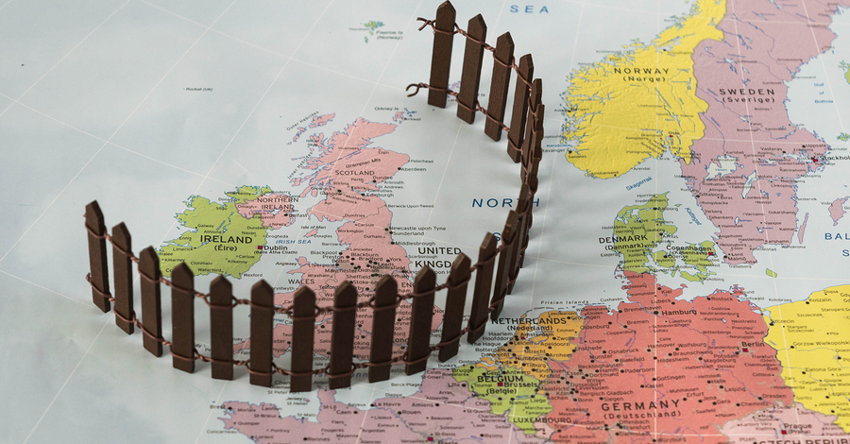
On the face of it, a discussion about the rules applied by the World Trade Organisation might seem entirely pointless. However, the reality is that if the United Kingdom leaves the European Union without a deal then the likelihood is that the country will end up falling back on WTO rules and regulations for the industry.
The reason that that’s an issue for gambling operators is that gambling is excluded from commitments made by the EU regarding market access. The result is that a British-based company would be excluded from taking part in a bidding process for anything taking place within the EU.
In 2007 the WTO ruled against the United States of America over an issue around the country’s gambling laws. To be more specific, the World Trade Organisation felt that the US was unfairly discriminating against foreign gambling companies when it allowed US-based companies to run horse racing betting across states but stopped companies located in Antigua from doing the same thing.
Might a move away from the EU and into the rulings of the WTO result in companies not based in the UK from being allowed to offer their serviced to the country without obeying the Gambling Commission’s rules and regulations? If so that would have all sorts of implications for the UK, not least of which would involve decisions around taxes.
Gibraltar, The Isle of Man & Alderney

Perhaps one of the biggest question marks hanging over Britain regarding the gambling industry and Brexit comes in the form of these three crown dependencies. All three of them are heavily invested in the world of gambling, particularly with regards to the online side of the industry. Many of the biggest companies that offer their wares to the UK are based on one of the islands and any move away from the European Union is likely to cause them all sorts of problems. In order to discuss the matter in more detail, let’s talk specifically about Gibraltar as a representative of all three islands.
Admittedly, the future of Gibraltar is a little bit more confusing than the futures of the Isle of Man and Alderney because of the fact that it has long been the subject of a dispute regarding its sovereignty. Arguments over whether it should come under the rule of Britain or Spain have raged for years, despite the fact that 98% of those based on the island want to remain under the jurisdiction of the UK. That matter is complicated by the fact that the island voted overwhelmingly to remain part of the EU. Indeed, it’s believed that around sixty percent of the staff that work in the gambling companies based on Gibraltar actually live in Spain and commute across every day.
As a result, the future of the island as a hub for online gambling will depend largely on what Spain’s approach to the matter is in the event of the UK leaving the EU. It’s entirely within the rights of the Spanish government to make it very difficult for people to cross the border to Gibraltar, thereby making it difficult for workers to commute back and forth every day. Given that Gibraltar will leave the European Union if the UK does, those living on the island might begin to change their mind about which country they would prefer to be ruled by if their access to the European mainland is restricted.
Part of the appeal to the crown dependencies for the numerous gambling companies is the low taxation that they’re responsible for there. Prior to 2014, for example, fixed odds operators paid just 1% tax on their turnovers until a new law was introduced to bring them in line with other gambling jurisdictions. Even with that change, however, it’s still more favourable for companies to remain on the crown dependencies because of the amount of tax employees have to pay and so on. The likelihood is that changes post-Brexit would result in many companies relocating from the three locations in order to continue getting access to an EU market. It would be a shame for them, given how much the nations excelled as part of the European Union thanks to the access to such large markets that they offered, making them so appealing to big companies in the world of iGaming.
Equally however the crown dependencies may gain some new companies post-Brexit as betting operators based in the EU, in say Malta, may decide to set up offices in say Gibraltar for better access to the UK gambling industry.
Malta
 Malta had been a colony of the United Kingdom for more than one hundred and fifty years, making it the ideal likely gateway to the EU for British companies if the UK does indeed leave the EU. With English being one of the country’s official languages and a favourable tax regime in place, it’s likely that companies based in the likes of Gibraltar will consider Malta as a ready-made replacement, or supplement, for where to base themselves.
Malta had been a colony of the United Kingdom for more than one hundred and fifty years, making it the ideal likely gateway to the EU for British companies if the UK does indeed leave the EU. With English being one of the country’s official languages and a favourable tax regime in place, it’s likely that companies based in the likes of Gibraltar will consider Malta as a ready-made replacement, or supplement, for where to base themselves.
Malta is already a country that has strong ties to the iGaming industry, so it would make sense for companies that are based there to push their wares whilst the powers that be will also try hard to attract new companies to set up there. Malta wouldn’t have any of the same problems regarding people commuting in from Spain that Gibraltar has, for example, whilst the fact that Malta will retain its agreement with the UK over healthcare will make it appealing to workers.
In general Malta should do very well out of Brexit as it will become the single biggest gambling hub within the EU once Gibraltar is classed as a non-EU territory. Again however while the effect will likely be a net gain the country does stand to lose some business with many operators that offer services to the UK from Malta deciding to move that part of their business to places like Gibraltar.
Bet365: Move To Malta
 Following the EU referendum Bet365 put plans into action to begin a relocation into Malta. Although headline grabbing this won’t effect existing business too much, with both UK and Gibraltar operations being retained.
Following the EU referendum Bet365 put plans into action to begin a relocation into Malta. Although headline grabbing this won’t effect existing business too much, with both UK and Gibraltar operations being retained.
Bet365, who have invested in a large amount of Maltese property, will use the new base primarily to run its operations in the EU. This move doesn’t change the existing business in the UK, and jurisdictions like Gibraltar, although Gibraltar may lose some staff.
It will impact the UK economy as the EU side of the business that could have been run from the UK will now not be, costing additional revenue and jobs for the UK economy. This however again may be a convenient argument as Bet365 were mooting the possibility of doing this back even before the referendum took place.
In reality Bet365 is a massive betting company and for them it makes sense to split their business into relevant regulatory markets. What remains to be seen is whether Bet365 begin to move other assets over to Malta if the UK economy starts to tank. We also need to wait and see the effect this could have on decisions other betting companies based in the UK, and UK territories, make in regard to where they base their future operations.
The Value Of The Pound and Euro

One of the most obvious ways in which the UK’s gambling industry will be affected by the country leaving the European Union comes in the form of the value of the pound. Since the result of the Brexit referendum was announced, we’ve seen the pound take a major hit against the biggest currencies of the world. On the 23rd June 2016, one pound was worth 1.3151 Euros. Now it is worth an average of 1.0881. That might not seem like a huge amount of money, but when you’re dealing in billions it becomes a significant difference.
From the point of view of the biggest companies that trade in the UK and the EU, that becomes a loss of hundreds of millions of pounds every year. When you then think about the fact that customers in the UK will have significantly less disposable income, it becomes clear that an exit from the European Union will affect the gambling industry in many different ways. That’s to say nothing of the fact that some consumers will feel less loyalty to brands that have moved abroad because of changes to the industry.
That said, a poor economy in general has always been good for the gambling industry, with many people seeing the opportunity of winning money as their main way out of financial trouble. Might a weak pound result in more people turning to gambling companies in order to ‘supplement’ their wage? That said, if the gambling industry as a whole takes a hit then it’s possible that workers within it will start to lose their jobs, making the entire thing incredibly complex.
Positives & Negatives For UK Gambling
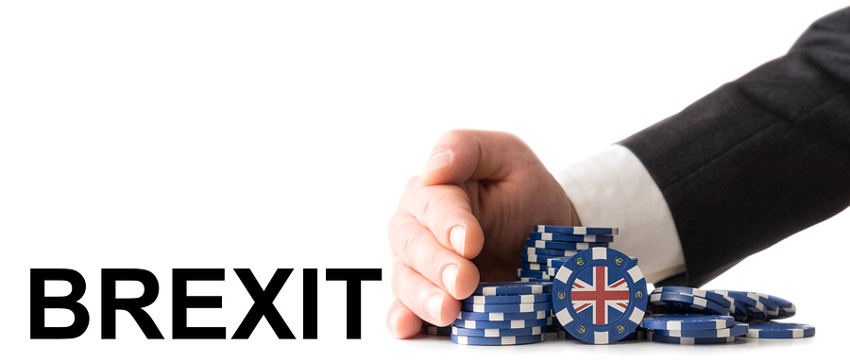
The number of ways in which the United Kingdom leaving the European Union affecting the gambling industry has barely been realised. Poker tournaments are immensely popular with overseas players, for example, but if the ease with which they’re able to enter said tournaments is taken away because of the changes to the free movement of people then they will be less inclined to do so and the economy will suffer as a result.
In all likelihood, an exit from the EU won’t affect the gambling industry all that much, certainly from the perspective of a UK punter betting in the UK. It is one of the most robust industries in the British economy, after all, and the laws and rules surrounding betting in the UK are so tight as to make it unlikely that any hit will be taken by the companies running the industry. Any issues that are likely to cause problems are procedural and are therefore easier to figure out in the long-run.
The other thing that allows UK companies to feel reasonably confident about the effects of any departure from the EU is the fact that online gambling has been rising year-on-year. Whilst that’s not necessarily guaranteed to continue, it is unlikely to take a major hit one way or another. One more considerable negative is likely to be the limit on staff that companies will suffer from after the free movement of people is no longer a viable option. Companies have been used to cherry-picking the best of the best from across Europe but will instead have to make do with just those that are entitled to work in the United Kingdom moving forward.
Perhaps the situation facing British-based gambling companies can be best summed up by Carl Rohsler, a top lawyer on the subject, who said, “Gambling businesses are very much part of the new era – the era that seeks to exploit intangible assets, data, human talent and international communication and, for that reason, it may well find that it faces many challenges in an environment in which barriers to such movement are being raised, not diminished”.
Finally let’s not also forget that leaving the EU will allow the UK to make new trading agreements with other nations across the globe, contained in these may be better or perhaps even exclusive access to foreign gambling markets for UK companies. There are always silver linings with these things.
Positives & Negatives For EU Gambling
 If there is a degree of uncertainty around the future of British gambling companies then that’s as nothing compared to companies that are located exclusively in the EU. On the one hand, the potential absence of the British behemoths might see their position in the market climb, yet on the other the reality is that UK companies have such a large share of the market because they’re known and trusted and this will probably continue. All of the UK’s biggest bookies have offices in the EU already and will be able to continue offering services from there – although they may have to pay additional tariffs to bring any profits back to the UK.
If there is a degree of uncertainty around the future of British gambling companies then that’s as nothing compared to companies that are located exclusively in the EU. On the one hand, the potential absence of the British behemoths might see their position in the market climb, yet on the other the reality is that UK companies have such a large share of the market because they’re known and trusted and this will probably continue. All of the UK’s biggest bookies have offices in the EU already and will be able to continue offering services from there – although they may have to pay additional tariffs to bring any profits back to the UK.
The UK gambling Commission ensures that companies that operate on our shores, wherever they are based, have to obey certain rules and regulations, meaning that consumers know that if they use them then there are certain options open to them if they feel that they’ve been cheated or misused somehow. Even in the worst Brexit scenarios all companies will still have to have a UK license to operate here which means you will still be afforded all of the legal protections stipulated in the legislation, in spite of the fact we will be leaving the central EU justice system.
Likewise EU gamblers betting with UK based companies will still be protected by their own national laws on gambling and in general by the EU justice system. If a UK company wants to operate in an EU market post-Brexit it will still need to comply with all relevant rules and procedures. Therefore just like the UK, EU bettors will notice little difference post-Brexit, apart maybe from a bit less value caused by higher costs for the companies.
UK Citizens Betting Abroad After Brexit
 Again this area is not going to see much change from the status quo. Currently the ability to bet when abroad is entirely dependent on your betting site and what countries they operate in, even when they do operate in a country you are visiting it doesn’t mean you can always bet with your UK account as the betting laws are often different. Whatever the state of play is now for a given operator in a given county will likely remain the same.
Again this area is not going to see much change from the status quo. Currently the ability to bet when abroad is entirely dependent on your betting site and what countries they operate in, even when they do operate in a country you are visiting it doesn’t mean you can always bet with your UK account as the betting laws are often different. Whatever the state of play is now for a given operator in a given county will likely remain the same.
For example, many UK operators have Spanish versions of their sites, but when in Spain you often can’t use your UK account, this is because the rules are different. The only way to bet in Spain (legally) is to be a resident and open a separate Spanish account this way. Following Brexit this is going to remain the same. The only difference may be that it is harder to get residence in an EU country, but in that instance I suppose betting would be your last concern.
The same will be true for EU citizens betting in the UK. Even pre-Brexit EU citizens must have residential status to open a betting account in the UK, this is not going to change, but again of course becoming a resident may become harder.
For more detail in this area see our betting from abroad article
Will Gambling Companies Pull Out Of The UK?
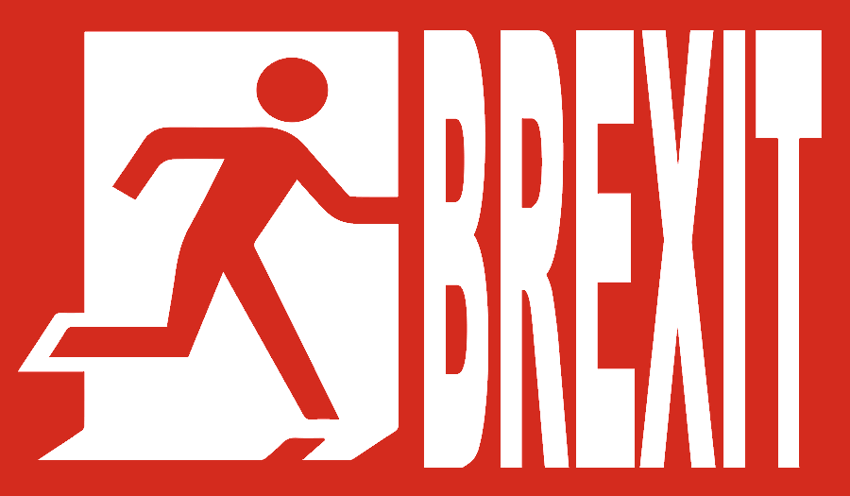
Whatever happens in the wake of the moment that the British government needs to decide to pull the trigger on the country’s membership of the EU, there will still be betting companies operating in the UK and offering their wares to the British people. What we don’t know right now is how many will remain based in the UK itself and how long those that currently are will stay here.
Perhaps the best example of this question comes in the form of Bet365, the Stoke-based company with offices in Gibraltar that was set up in 2000. Yes, they have been located in the UK ever since they started operating, however the UK’s membership of the EU means that they are on the receiving end of certain privileges that they might not be afforded once we’re no longer in the Single Market.
The loss of those benefits could see the company move away from their Stoke base in order to continue to operate as an EU sportsbook/casino, which would result in a shock to the economy of the city, given how ingrained in the local area the company is. In all likelihood however Bet365 will just open more offices abroad, or move some offices, perhaps to Malta, to allow it to operate in the EU but still maintain its British presence. Even the Gibraltar side of the business is relatively safe as these companies will still offer UK services from these dependencies for tax reasons.
As for whether or not all of these companies actually will leave the United Kingdom and its crown dependencies, it’s genuinely impossible to answer at this stage. There are so many levels of negotiations to be carried out that it’s difficult to predict what will happen. Kevin Smith, an SIS legal counsel, believes that the government does not see the betting industry as ‘strategically important’ to the UK, meaning that it’s unlikely that any kind of priority will be given to sealing new deals and EU market access during any trade negotiations. If that proves to be the case then companies that might be thinking about sticking around to see how Brexit works out could quickly decide that it isn’t worth their bother.
Brexit Best Case & Worst Case
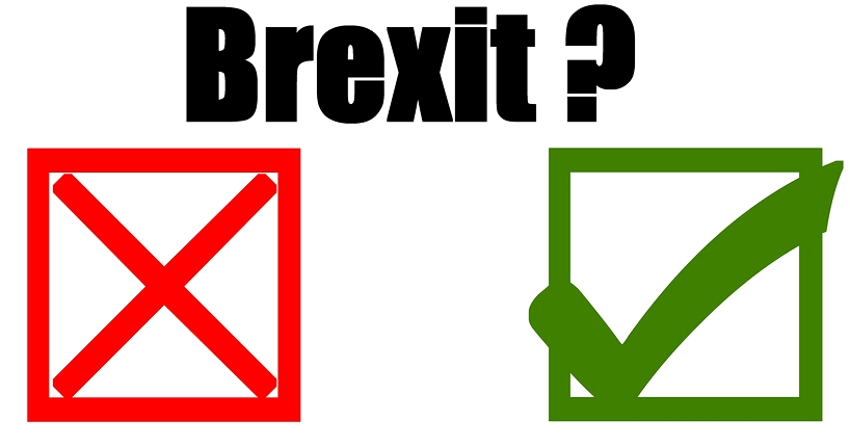
In the best case scenario, Brexit will have no real impact on the state of play for the gambling industry. The reality is that it doesn’t help the European Union to make life difficult for companies operating on their shores and hoping to work with the UK, so it’s entirely possible that they make as many exceptions as possible to allow gambling companies to keep working with British consumers from bases on mainland Europe.
It’s extremely unlikely that companies will be affected too badly by any changes to the current situation in simple terms of the UK going from being part of the EU to not being a part of it any more. After all, the sporting events are still the same, casino games won’t change and people won’t suddenly stop wanting to place bets. As mentioned earlier, the biggest issues are likely to be procedural and that would mean that working through them is just a matter of negotiation.
However, there is also a worst case scenario for the gambling industry that will see profits nosedive, employees lose their jobs and companies go into meltdown. If the UK leaves the European Union without a deal and falls back on WTO rules then there’s no telling what situation might develop. If Britain leaves the European Economic Area as a result of Brexit then it will become much harder for businesses asset their rights, which may also impact on tax and workers’ rights.
The biggest impact is likely to come in Gibraltar, where the gambling industry is responsible for around a quarter of the country’s overall GDP. Given the number of gambling companies based there, Malta and the Isle of Man, any change to the UK’s status as a part of the EU will hit them hard and impact on the companies based there. The average consumer might not care all that much, but when odds start shifting and generous offers become less and less frequent, it’s likely that they’ll start to notice.
It’s possible that the gambling industry will thrive outside of the European Union but, at present, that doesn’t seem like the most likely scenario.